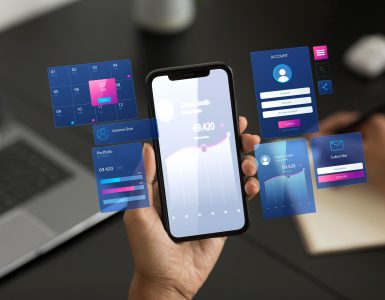Mobile presence has become vital for businesses, playing an essential role in their business transformation. With the increased penetration of smartphones among the masses, the new focus is on becoming a mobile-first company for business success. Creating a mobile app won’t suffice to capture mobility’s edge. It takes in-depth research, planning, strategy building, and accessing the mobile ecosystem within the industry to develop mobile apps that translate into success for a business.
Native mobile apps offer outstanding aesthetics and functionality, but they are costly, given the diversity of the devices and platforms. Mobile app frameworks are available that allow the creation of web, hybrid, and cross-platform applications.
This article will list the best mobile app development frameworks that offer quick development processes, efficiency, and cross-platform compatibility.
1. Flutter
Google creates Flutter to allow developers to create native Android and iOS apps with a single codebase. It’s an open-source mobile app framework that has gained massive popularity among developers who create cross-platform apps. The unique feature of Flutter is its ability to allow developers to develop highly reliable UI interfaces utilizing the native platform features, whether it’s Android or iOS. Some prominent apps built using Flutter include Google, Alibaba, and Spotify.
Features:
- A complete framework
- Built-in material design
- Strong widget support
- Rich motion APIs
- Includes a rendering engine
- Built-in Cupertino (iOS-flavor) widgets
- It supports both iOS & Android
- High-performance application
2. Native Script
Another open-source mobile app framework, Native Script, is used when there is a requirement for creating blazing fast applications based on TypeScript, CSS, JavaScript, Vue, and Angular. It is a preferred framework to reduce the code and time of the app loads. If you are planning to build robust applications to be used on multiple platforms, you can rely on Native Script. It offers many benefits that include:
- Native user interface without WebViews
- Support and access to all Android and iOS APIs
- Support for cross-platform app development
- Robust backend support
- Optimized for app development out-of-the-box
3. React Native
React Native is created by Facebook as an extension of the popular JavaScript library, React. Soon after its release, React Native became the preferred mobile app framework for cross-platform app interface development.
Using this open-source mobile app development framework, developers can create apps for both Android and iOS. Due to its highly accelerated and intuitive development flow, React Native has become a framework of choice despite being a newcomer in the industry. Instagram, Tesla, Amazon Prime Videos, and Skype are some popular apps built on React Native.
Features:
- Reusable code across platforms
- Support for third-party plugins
- Reusable components for maximum efficiency
- Rapid deployment ecosystem
- Simple maintainability of code
4. Xamarin
A Microsoft product, Xamarin is another cross-platform mobile app framework. It is suitable for C# developers who want an efficient and faster mobile app framework for creating Android or iOS apps. As C# is a much more efficient programming language, Xamarin uses fewer lines of code to offer the same level of robustness and functionality as other mobile app frameworks on the list. Also, the app development is much faster without compromising on app design or performance. On top of that, Xamarin allows the swift transfer of scripts across multiple platforms, such as between Windows and macOS.
After Microsoft acquired Xamarin, it added a feature to connect Visual Studio with the framework, further improving its capacity in terms of quality and performance.
Features:
- UI support and native API access
- Regular updates and fixes from Microsoft
- Targets all mobile platforms
- Easier API integration
- Faster app development with VS Code
5. Ionic
Ionic is one of the most efficient mobile app frameworks for building interactive hybrid and Progressive Web Applications and not just cross-platform applications. Also, an open-source framework, Ionic, is used by famous enterprises such as MarketWatch, Diesel, McLaren Automotive, and Honeyfi. Developers can build mobile, web, and cross-platform applications using the same framework. You can build apps with Ionic using HTML, CSS3, and JavaScript technologies. It is the reason why this mobile app framework is extensively used to create HTML5 hybrid applications and Progressive Web Applications. It offers consistent app designs, performance boost, and multiple device support, among other things.
Features:
- Faster mobile app development
- Supports Cordova plugins
- UI components come pre-installed
- Platform independent
- Angular and React versions are available
6. Swiftic
Swiftic is a do-it-yourself mobile app framework that anyone can use to build unique apps. You do not have to be a developer, but if you are, you can exploit its features to create robust mobile applications. Of all the listed mobile app frameworks here, Swiftic is the most flexible option as it has a more straightforward interface and is beginner-friendly. It offers several mobile app development features out-of-the-box like push notifications, social network feeds, and app advertising.
Features:
- Easy-to-use interface
- Cross-platform compatible
- Supports third-party integrations
- In-built one-click feature deployment
Conclusion
Considering several factors like ease of development, cross-platform support, faster coding, and operating systems, these are the top 6 mobile app development frameworks of 2022.
Talent500 is the platform for mobile app developers to connect with global companies looking for the right talent. Sign up here and be ready to discover career-redefining options.






Add comment